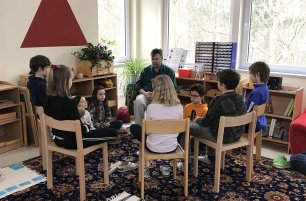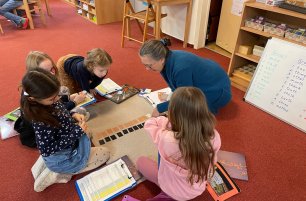Grace and Courtesy: Why is it so important?
Grace and Courtesy is a major part of the Practical Life curriculum from infancy through adolescence. You might overlook the Grace and Courtesy curriculum when you first visit a Montessori classroom; unlike Mathematics or Language, there usually isn’t a dedicated shelf or corner for it. However, it is nonetheless an essential part of the curriculum, with set lessons and goals; its „didactic materials“ are the teachers themselves, as well as the children’s community. Its aim is far more than simply teaching etiquette: it is to aid the self-construction of the child in their task to assume their full place in the human community.
Read more




